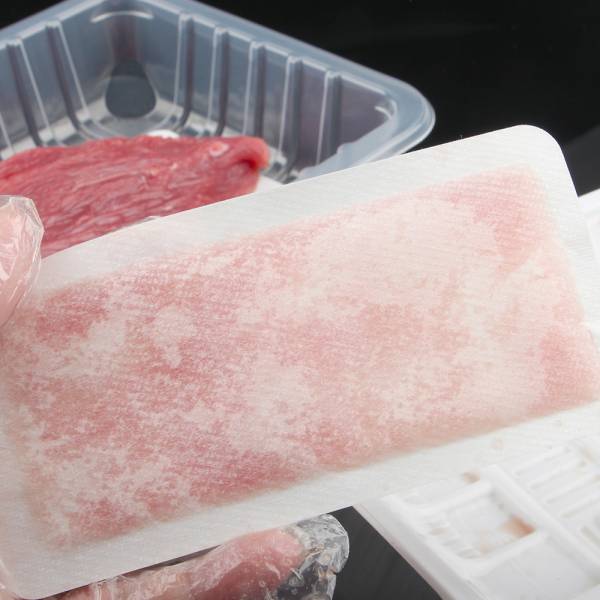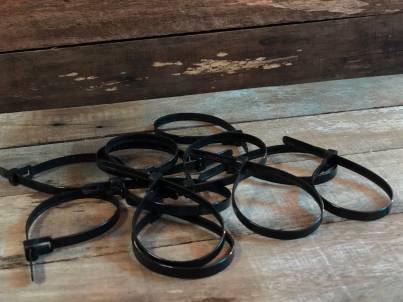Connect with a verified veterinarian in minutes. Licensed vets are available 24/7 to answer your questions. No need to worry about your furry family member.
Dogs are not known for their good sense when it comes to eating just any old thing that they find appealing. Be it a dead animal they’ve found, skins from baked potatoes he may find in the trash and more. Dogs will try almost anything, even ink pens!
You may not even realize that your furry friend has eaten an ink pen, unless you find parts of the pen that were chewed off or even a spot of ink on the floor. When this happens, it can be pretty scary. You wonder if the ink will make your dog sick or whether the pen pieces could cause a problem.
The good news is that the ink in most pens is not toxic to dogs, if eaten only in small amounts. However, the plastic of the pen can present a health problem to your fur baby.
Symptoms of Ink Poisoning in Dogs
If your fur baby eats a large number of pens, he may develop ink poisoning. The symptoms to watch for include:
- Vomiting
- Diarrhea
- Lethargy
- Lack of appetite
- Non-responsive behavior
- Difficulty breathing
- Loss of consciousness
- Mouth irritation
- Staggering
- Seizures
Do not induce vomiting unless your vet has recommended you do so.
If your dog has ingested some ink, then it will be important to observe him for any of the symptoms listed above.
However, if you’re unsure of what to do, it’s a good idea to call your vet. When speaking with the vet, let them know how many pens your dog has eaten and list any symptoms your fur baby may have. The vet will also ask about when these symptoms first started.
If your dog is acting normally and not showing any of the symptoms above, the vet may have you monitor your fur baby’s symptoms. If your dog begins showing any of the symptoms mentioned earlier, the vet will want to see your dog.
You may need to take your fur baby to the vet for treatment.
Treatment of Ink Poisoning in Dogs
The vet may try to induce vomiting (only if they haven’t eaten sharp plastic pieces of the pen)if your dog ingested the ink only a short time before. They may also give your dog activated charcoal, which will keep the ink from being absorbed into your canine companion’s intestines.
Depending on your dog’s symptoms (and their severity), the vet may run bloodwork and provide your furry friend with supportive care, including IV fluids. Further treatment depends on your dog’s symptoms and their severity.
The prognosis is very good for your fur baby—chances are he will not suffer any ill effects from eating a small amount of ink. And if he did have a lot of ink, then quick treatment will ensure he’ll be OK.

Review symptoms, medications & behavior to keep your pets healthy with a Vet Online in just minutes.
Ask a Vet Live NowBowel Obstruction from Pen’s Plastic Casing
The other health problem you’ll need to watch for is a bowel obstruction caused by the pen’s plastic casing. The plastic can become lodged in your dog’s intestines, causing a blockage. This is a medical emergency.
Bowel obstructions may occur if your dog has eaten something (such as one or more pens) that blocks his stomach or intestines. The obstruction may be partially or completely blocked. When this happens, food and water are unable to pass through your fur baby’s digestive tract. His blood flow is also decreased. An obstruction can happen anywhere along a dog’s digestive tract.
Symptoms & Treatment of a Bowel Obstruction in Dogs
Your fur baby may exhibit some of these symptoms if he has an intestinal blockage:
- Weakness
- Diarrhea or lack of poops
- Vomiting
- Dehydration
- Bloating and abdominal pain
- Lack of appetite
- Hunching and/or whining (from pain and discomfort)
If you observe these symptoms in your dog, call the vet immediately. At the vet’s, they will examine your fur baby and will run blood tests and most likely imaging tests, too. The imaging tests help the vet to see where the plastic is causing the blockage. Treatment will depend on where the plastic is lodged, and how long the pen pieces have been in the dog’s system, and the shape/size of the item causing the problem. Your canine companion may require surgery to relieve the blockage.
In most cases, when the dog receives prompt medical attention, the prognosis is very good. These dogs can go on to live happy, long lives afterwards.
In all cases, it’s best to keep pens out of your dog’s reach. Accidents do happen, so if your fur baby has eaten ink or the pen casing, be sure to call the vet immediately. Fast treatment could save your fur baby’s life.
Connect with a verified veterinarian in minutes. Licensed vets are available 24/7 to answer your questions. No need to worry about your furry family member.

Aisling O'Keeffe, MVB CertSAM ISFMCertAdvFB
This article has been reviewed and approved by an independent Veterinarian: Aisling qualified as a vet 7 years ago from University College Dublin. She has worked in a mixture of UK small animal hospitals along with Irish practices. She worked for 3 years in a feline-only hospital where she further developed her feline medicine and surgery skills. She currently lives and works in a small animal hospital in Cork, Ireland.
Review symptoms, medications & behavior to keep your pets healthy with a Vet Online in just minutes.
Ask a Vet Live Now






